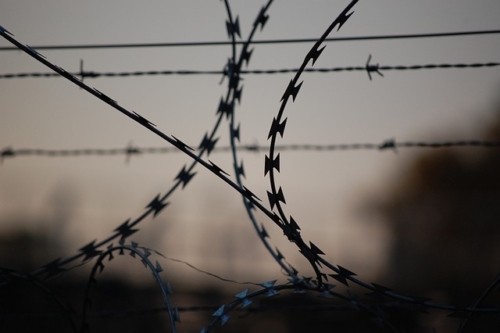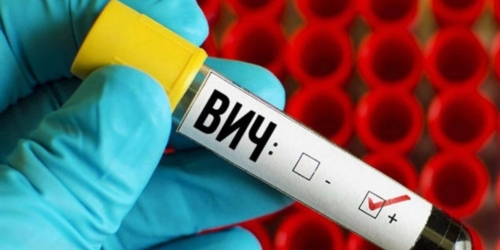Three men are on trial in the Dutch city of Groningen accused of deliberately injecting 12 men with HIV during private sex parties.
The case has been covered with remarkable restraint by the Dutch media, and I include three reports below – the first of which includes extremely interesting insights into the workings of the Dutch criminal justice system.
I had been waiting to post this story after the initial reports because the trial was expected to last a week. However, other than a report on sentencing requests a few days after the initial two stories nothing else has been published. I had previously covered their arrest, in 2007, on aidsmap.com.
One imagines that since the case will rest on complex phylogenetic analyses, as well as debates over the relative seriousness of the alleged crimes, that the case has been adjourned.
Update: The 3 men were sentenced in November, see summary below.
According to Radio Netherlands:
One of the accused was jailed for nine years, another to five years, while the third man was sentenced to a year-and-a-half term and will be released immediately since he has already spent a longer period in jail awaiting trial.
The Public Prosecutor’s Office – which had asked for terms of 15 years against the main two suspects and one of eight for the third man – announced it would appeal against the court’s ruling.
Notably, the court ruled that there was no proof that the men had actually infected their victims with HIV, because it was impossible to prove that the men were not already infected prior to attending the sex parties. Consequently, as far as the deliberate HIV infection charges went they could only be found guilty of attempting to cause grievous bodily harm. However, the court did find them guilty of rape and injecting the 12 men with HIV-infected blood.
But the story doesn’t end there. Now, the 12 complainants and a further two men who allege they were also infected at the sex parties have begun civil proceedings against the three men, according to another article on the Radio Netherlands website.
In a remarkable twist of Dutch law, in the civil case, the accused men must prove that the 14 complainants did not become infected as a result of the injections. It is thought that this case will take months, if not years, and will require detailed and incredibly costly scientific evidence.
The men are hoping for €1 million in damages. The assets of the three men have already been frozen.
Demand for 15 year sentence in HIV trial
The public prosecution department has demanded prison sentences of 15 years in the Groningen trial of three men accused of causing grievous bodily harm by deliberately injecting a number of men with hiv-infected blood.
The call for 15 years is for two of the men, Peter M (49) and Hans J (39) who are accused of drugging the men at sex parties and then abusing them.
The third defendant, Peter’s partner Wim D (48) is facing a sentence of eight years.
So far 14 victims of the sex gang have been identified.
HIV criminal trial opens in the Netherlands: Three men accused of deliberate infection
A trial concerning a bizarre crime – now known in the Netherlands as ‘the HIV case’ – started in the northern Dutch city of Groningen today. Three homosexual men are alleged to have drugged and then deliberately infected at least 14 other men with HIV, the virus that can lead to AIDS.

Drugged, injected
Jillis Jansen, a student who has worked in a number of gay bars in Groningen and knows the scene well, heard the story from Roy: “After I spoke to him, I had the distinct impression that he’d been really curious about private sex parties. And what happened to him – at least, what he told me – is that at some point he was drugged and then injected with something. The next thing he remembers is waking up in his own car, that he had parked in the neighbourhood”.
A few days later, Roy became very ill. Hospital tests revealed that he had blood from a different blood group running through his veins. The tests also revealed that he was HIV positive. In the course of 2006 and 2007, 13 other gay men were allegedly infected with HIV in the same manner as Roy. All 14 men had been looking for sex and met the three suspects via internet dating sites. All of the alleged victims say they were drugged and then injected, against their will, with HIV-infected blood.
The three suspects now standing trial were arrested in May 2007 and stand accused of deliberately setting out to cause grievous bodily harm.
The accused
Jillis Jansen knows of the accused: “What I know is that haven’t been active on the Groningen gay scene for a few years. I know that they used to go to the gay sauna; they were seen there a number of times, but that was seven or eight years ago. A number of people who know them personally told me that they went to live in some village and weren’t active on the [Groningen] scene anymore”.
The lawyer representing the three suspects refused to comment on the case before the start of the trial. Analysts expect he will try to sow doubt in the minds of the judges, possibly relying on aspects such as: just when exactly were the victims infected with HIV? Was it at the sex parties held by the suspects or was it earlier? Lawyer Fred Kappelhof is acting for the victims and he is certain that the defence will challenge the alleged date of infection.
Defence tactics
Mr Kappelhof: “I wouldn’t be surprised if the defence tries to deny that my clients were infected at the sex parties. I can’t really say anything about it except that I believe the Public Prosecutor’s Office (PPO) has a very strong case. Reports from a number of experts will be presented during the course of the trial. The PPO is prepared for the defence lawyer’s tactics and several experts have been retained in order to answer any challenges by the defence. The reports and the experts’ testimony will help to clarify the issue”.
All 14 of the victims in this case are sick, some of them sicker than others. A number of them are already taking HIV inhibitors. They all want to know why the suspects deliberately infected them with HIV, and hope that the answer to this will be forthcoming during the trial. This trial is without precedent in the Netherlands – never before has there been a criminal charge concerning a large group of men being forcibly and deliberately infected with HIV.
Three men on trial for injecting HIV
The trial of three men accused of deliberately injecting 12 men with HIV-infected blood is due to start in the northern Dutch city of Groningen this week.
The public prosecution office claims it has sufficient evidence to prove that the suspects, Peter M. (50), his partner Wim D. (49) and Hans J. (35), infected 12 men by injecting them with a cocktail of their own blood – all three suspects are HIV-positive – in the period between 2005 and 2007.
The three men have been charged with intentionally causing grievous bodily harm, which carries a maximum sentence of 12 years in prison. They also face a number of assault charges, which have a maximum eight year sentence, and possession and use of illegal drugs. Peter M. is also accused of stealing materials from the nursing home where he worked.
Neither the prosecution not the defence will disclose whether the defendants are to plead guilty or not guilty.
Chat rooms
The suspects came into contact with a number of men via internet chat rooms and invited them to sex parties where they drugged them with the party drug GHB and ecstasy. Most victims had little or no recollection of what happened after they were drugged.
The key legal question is whether it can be proved that the victims were infected with the HIV virus during these sex parties or elsewhere. The Dutch high court has ruled on four similar HIV cases, but these involved people who had had unsafe sex and had failed to inform their partners that they were HIV-positive.
In these cases the high court ruled that having unsafe sex without telling your partner of your HIV status did not in itself amount to causing grievous bodily harm. One of the reasons was that HIV is no longer considered a fatal disease.
Contaminated blood
During the upcoming case, three virologists will provide expert evidence. Kirsten Smit, spokeswoman for the Groningen public prosecution office: “The comparison of viruses will play an important role in this case. The virologists have compared the strains found in the blood of the suspects and those in the victims.”
The aim is to establish which of the defendants caused the infection and whether being infected by HIV through unprotected sex is more or less serious than being injected by contaminated blood.
The suspects were arrested in May 2007 but the complexity of the case and the large number of victims means the case has taken until now to come to court.
Financial compensation
Peter M. is considered the main suspect and the organiser of the sex parties where the offences took place.
His lawyer, Wim Anker, says the case is “legally and medically extremely complicated”. He says it will be difficult to prove that the victims’ HIV infections victims were caused by one of the three suspects.
A civil case for financial compensation is also being brought by the 12 victims and an additional two, who all claim they developed medical problems after the sex parties. Their lawyer in the civil case, Fred Kappelhof, is asking for “considerable sums” in damages for his clients.




